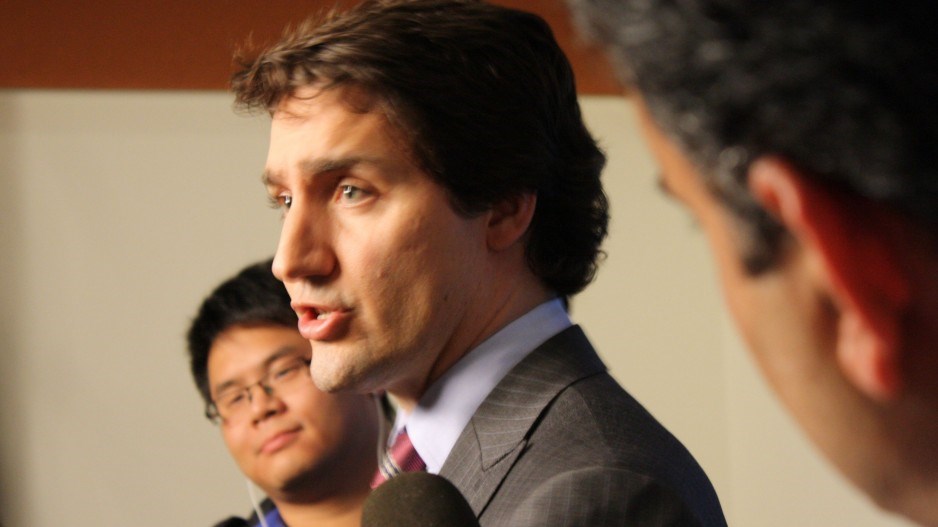In an April 11 speech in Vancouver, Justin Trudeau once again walked the fine line between supporting Canada's resource industries and targeting the Harper government for its poor performance on the environment.
The federal Liberal leader said an overly-politicized National Energy Board and the appearance that Prime Minister Stephen Harper has put his "thumb on the scale" of approval processes has led to projects being unnecessarily delayed.
"One of the things that's important for the federal government to do is to establish that even playing field on which industry can try and gain social license," Trudeau said.
Trudeau supports Keystone XL, but continues to be opposed to Enbridge's Northern Gateway pipeline.
"One of the things about the National Energy Board is that it was increasingly politicized in order for the Northern Gateway project to be dealt with," Trudeau said
"When the NEB dealt with Keystone XL, which I support, it was going through a much more rigourous and responsible process than it is right now, so I would certainly look at the NEB becoming more of a trusted, and less of a politicized body than it's become."
Trudeau said that increasing the number of people with post-secondary degrees to 70% would be a priority for the Liberals, and that if elected, his government would put more money, sooner, into repairing and replacing aging infrastructure across the country.
Some experts have pegged Canada's infrastructure deficit as being as high as $1 trillion. While the Conservative government has pledged $53 billion to fund infrastructure projects over the next 10 years, Trudeau said that cities and towns can't wait that long.
Asked how he would pay for such programs during a question and answer period moderated by Vancity CEO Tamara Vrooman, Trudeau said his government would neither raise nor cut taxes, but that his government would focus on growing the economy.
He also floated some potential solutions to the problem of student debt, such as tying debt repayments to income and the creation of a personalized RESP that would help Canadians save for training throughout their careers.
@jenstden




